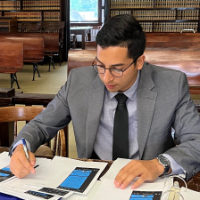 Rainier Real Estate Lawyers, Oregon
Rainier Real Estate Lawyers, Oregon
Sponsored Lawyers
1-10 of 39 matches
Animal Bite, Insurance, Premises Liability, Nursing Home, Mass Torts
Marc Johnston is the owner and Managing Attorney of Johnston Law Firm, P.C. He is admitted to practice in the State of Oregon and specializes in handling personal injury, wrongful death, and civil trials. He has a winning trial and arbitration record and fights tirelessly for his clients. Mr. Johnston’s career has been dedicated to representing the injured and surviving family members of people killed by negligence. He frequently takes on large corporations and insurance companies on behalf of injured clients. His focus on trial law creates the backbone of the Johnston Law Firm — a firm that is ready to go the distance in seeking justice for its clients. The Johnston Law Firm always offers a free consultation and is heralded by its former clients for excellent results, great compassion and skillful legal work.
(more)Tax, Business, Estate, Real Estate
Landlord-Tenant, Commercial Leasing, Slip & Fall Accident, Bed Bug
Alex Hostetler graduated "cum laude" from Lewis & Clark Law School in 2018. Alex decided to take the plunge into law school in order to work to improve access to justice for everyone. As a member of the LGBT community, he understands how intimidating it can be to reach out to someone who doesn’t understand your background, no matter your issue. He hopes to help people alleviate some of that stress by offering thoughtful legal services to individuals from all walks of life. As a newer attorney, Alex is working under the supervision of managing attorney, Jennie L. Clark, and the other highly experienced attorneys in the firm of Clark Law and Associates, LLC on landlord/tenant and personal injury cases. Alex currently lives with his husband in Beaverton. In his free time, he enjoys video games, cross stitch, and hiking. Alex is a huge animal lover, and lives with a spoiled dog, two cats, and too many fish.
(more)Accident & Injury, Motor Vehicle, Landlord-Tenant
Joseph L. Haley, Attorney at Law Associate Attorney Joseph (“Joe”) Haley was born in Marietta, Ga. Joseph’s entire adult working life was devoted to the practice of law, culminating with over 20 years at the Texas Attorney General serving the needs of Texas children. Joseph has a deep passion for serving the legal needs of those unable to help themselves. Educational Background: • Vanderbilt University; B.A. in Political Science and Business Administration. • SMU Dedman School of Law; and first passed the bar in the State of Texas in 1979. He is still licensed in Texas on retired status and admitted in northern, southern & western districts of Texas & US Court of claims. Mr. Haley moved to Oregon for love. He has been a member of the Oregon Bar since 2020. His current Practice Areas for Portland clients: • Personal Injury law • Auto Accidents • Dog Bites • Premises Liability • Landlord/Tenant law • Unfair Trade Practices • Probate • Police misconduct While not practicing law, Joseph enjoys reading; movies (particularly classics); music; loving cats and dogs; traveling the Oregon coast, and enjoying Oregon’s beautiful parks.
(more)







